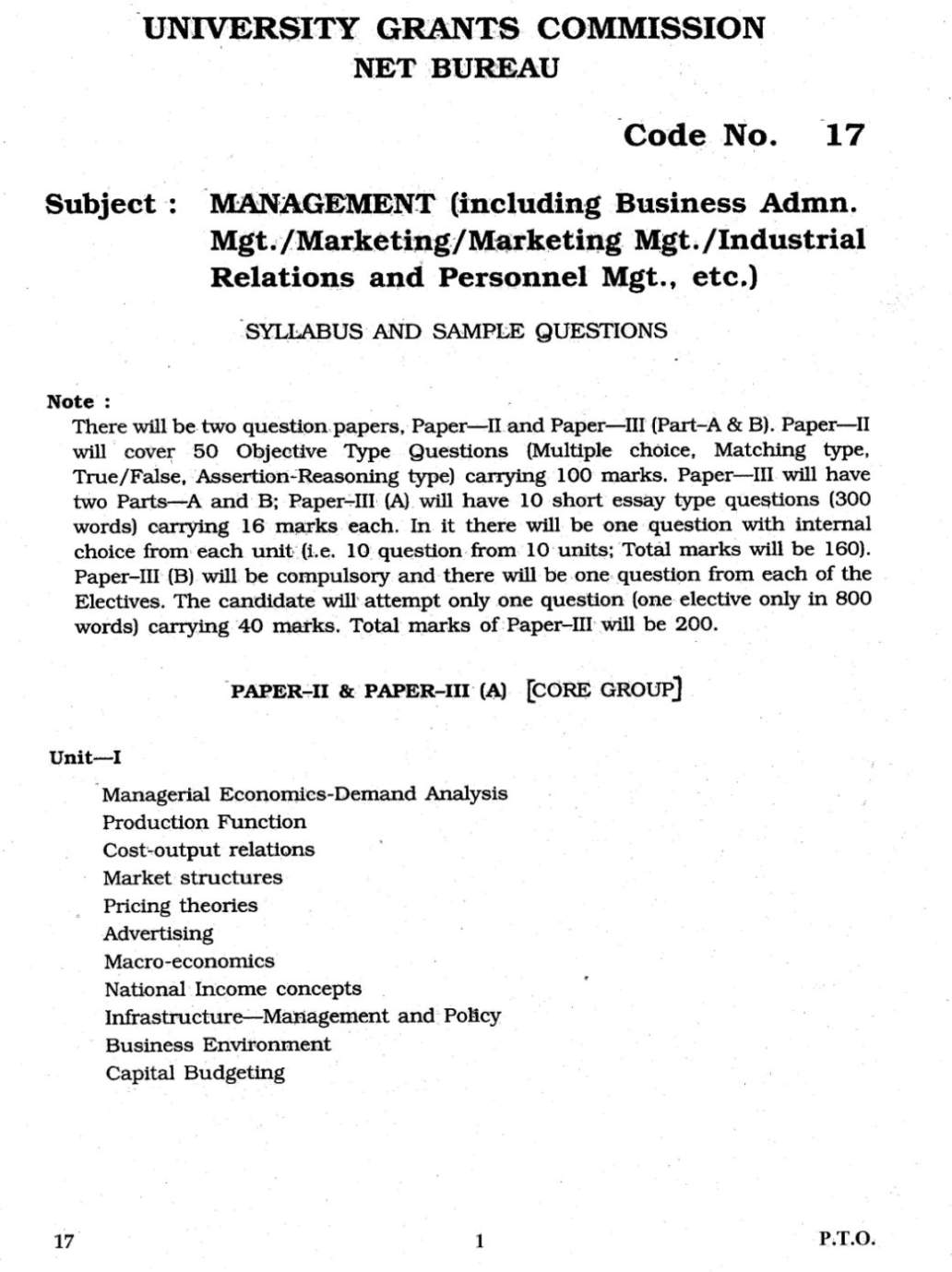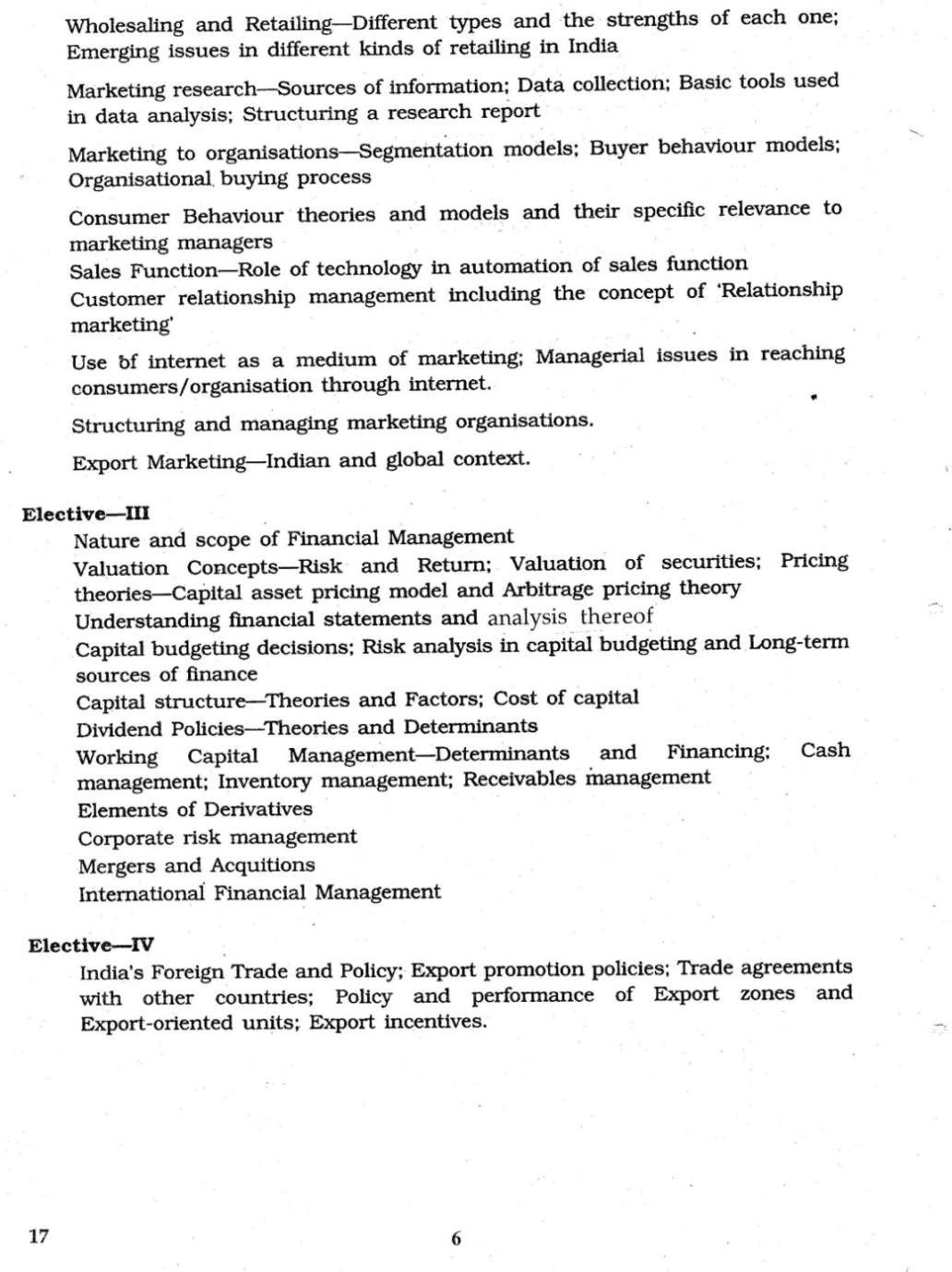|
#4
19th March 2015, 12:20 PM
| |||
| |||
| Re: Syllabus Of Management Paper For NET Exam
As you want to get Syllabus of Management Paper for NET Exam and some questions of that paper so here I am giving you same: Here I am giving you some questions of Management Paper for NET Exam: 1. In case the price (P), quantity (Q), and changes (D) are represented by respective symbols given in the brackets, the price elasticity of demand (Ed) is measured by (A) Ed = DQ/DP (B) Ed = (DQ/Q)/(DP/P) (C) Ed = DP/DQ (D) Ed = (DP/P)/(DQ/Q) 2. Law of Diminishing Return applies when the gaps among the successive ‘multiple-level of output’ isoquants (A) decreases (B) remains constant (C) increases (D) remains irregular 3. In case the demand elasticity under imperfect competition is unity, the marginal revenue will be (A) more than utility, but less than infinity. (B) equal to unity. (C) less than unity, but more than zero. (D) equal to zero. 4. Rise in general price level alongwith declining output in the economy is called (A) Inflation (B) Deflation (C) Stagflation (D) Demand-pull inflation 5. National income equilibrium is not at the level where (A) aggregate investment equals aggregate savings (B) aggregate expenditure equals aggregate income (C) inflationary and deflationary gaps are absent (D) aggregate consumption is constant 6. Which of the following is a correct match ? (A) McClelland – ERG Theory (B) Skinner – Reinforcement Theory (C) Vroom – Equity Theory (D) Locke – Expectancy Theory 7. The study of gestures and body postures for their impact on communication is known as (A) Kinesics (B) Proxemics (C) Semantics (D) None of the above 8. According to Organisational Culture Inventory (OCI), an organisation in which members are encouraged to work together in ways that meet higher order human needs is classified as having a _________ culture. (A) constructive (B) motivational (C) passive (D) high achievement 9. A matrix structure of organisation (A) reinforces unity of command (B) is inexpensive (C) is easy to explain to the employees (D) gives to some employees more than one boss 10. Organisational development (OD) is a planned change plus (A) Evaluation (B) Intervention (C) Ability for self-renewal (D) Reinforcement 11. Match the following : List – I (Concept) List – II (Term) a. An ongoing and formalised effort that focuses on developing enriched and more capable workers i. Direction phase b. A career development activity in which managers make decisions regarding the advancement potential of subordinates ii. Career development c. A career development activity that focuses on preparing people to fill executive positions iii. Promotability forecast d. Determining the type of career that employees want and the steps they must take to realise their career goals iv. Succession planning Codes : a b c d (A) i ii iii iv (B) ii iii iv i (C) ii iii i iv (D) i iii ii iv 12. A formal explanation of the knowledge, skills, abilities, traits and other characteristics necessary for effective job performance is known as (A) Job Description (B) Job Analysis (C) Job Specification (D) Job Enrichment      Here is the attachment for syllabus: |